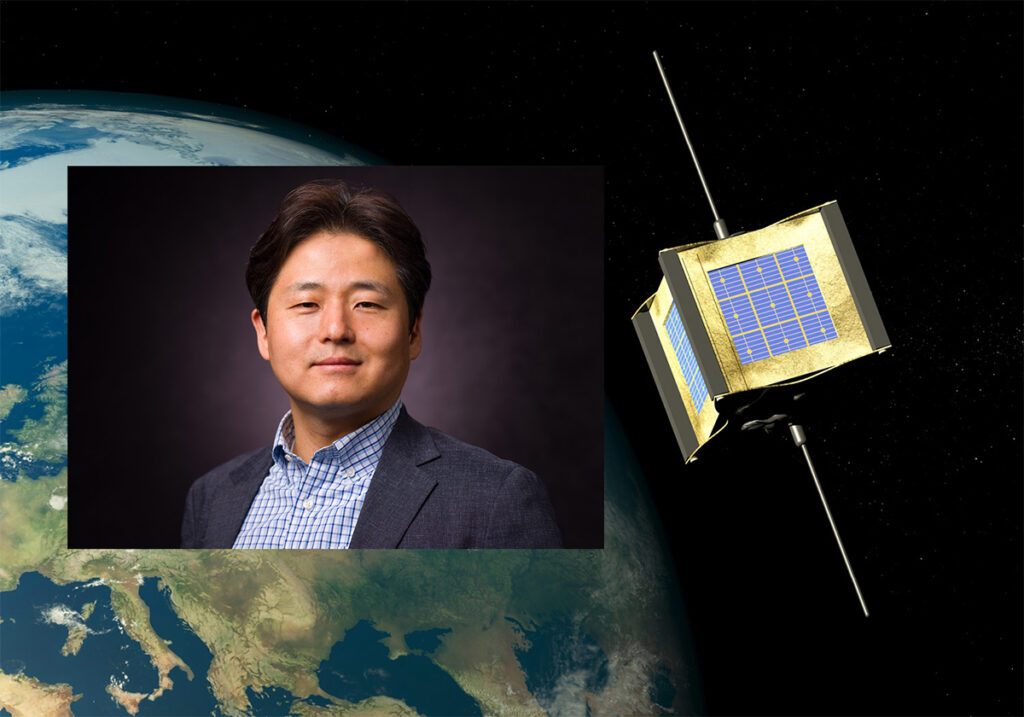
Iowa State University Department of Aerospace Engineering assistant professor, David D. Lee has been awarded a Research Award through NASA EPSCoR with the support of Iowa NASA EPSCoR. Funding through this award will assist Lee in research to improve navigation capabilities for cube satellite (CubeSat) technology in space.
Lee’s grant-supported research project deals with a new navigation technique for CubeSats, which provide an attractive solution for space research by universities and research institutes due to their cost-effectiveness in conducting experimental missions.
Lee explains that expansion of CubeSat use into deep space will require highly accurate position knowledge and precision. However, applying CubeSats to deep-space missions poses challenges in acquiring precise navigation information because they cannot use Global Positioning Systems (GPS). Lee’s research addresses this need. The proposal suggests an approach to obtain non-GPS inertial navigation information by tracking solar system planets through a method called “dual star trackers.”
Star trackers are optical devices that operate like smart cameras to measure the positions of stars or planets using photocells or cameras. Lee’s research proposes the use of cameras for this purpose. By taking pictures and recording the spacecraft’s direction, the tracker can analyze and compare the images to a catalog of star or planet positions to assess a precise location.
“For deep space research purposes and CubeSat extended applications, this could be a cornerstone project for my major research field,” Lee says. “We will collaborate with the NASA Ames Research Center and Johnson Space Center. These collaborations will result in various research projects for spacecraft navigation technology.”
Lee is also the director of Cardinal Space Laboratory, which encourages innovative research and educates students dedicated to the design, development, and operation of space systems.
Read the full story here.